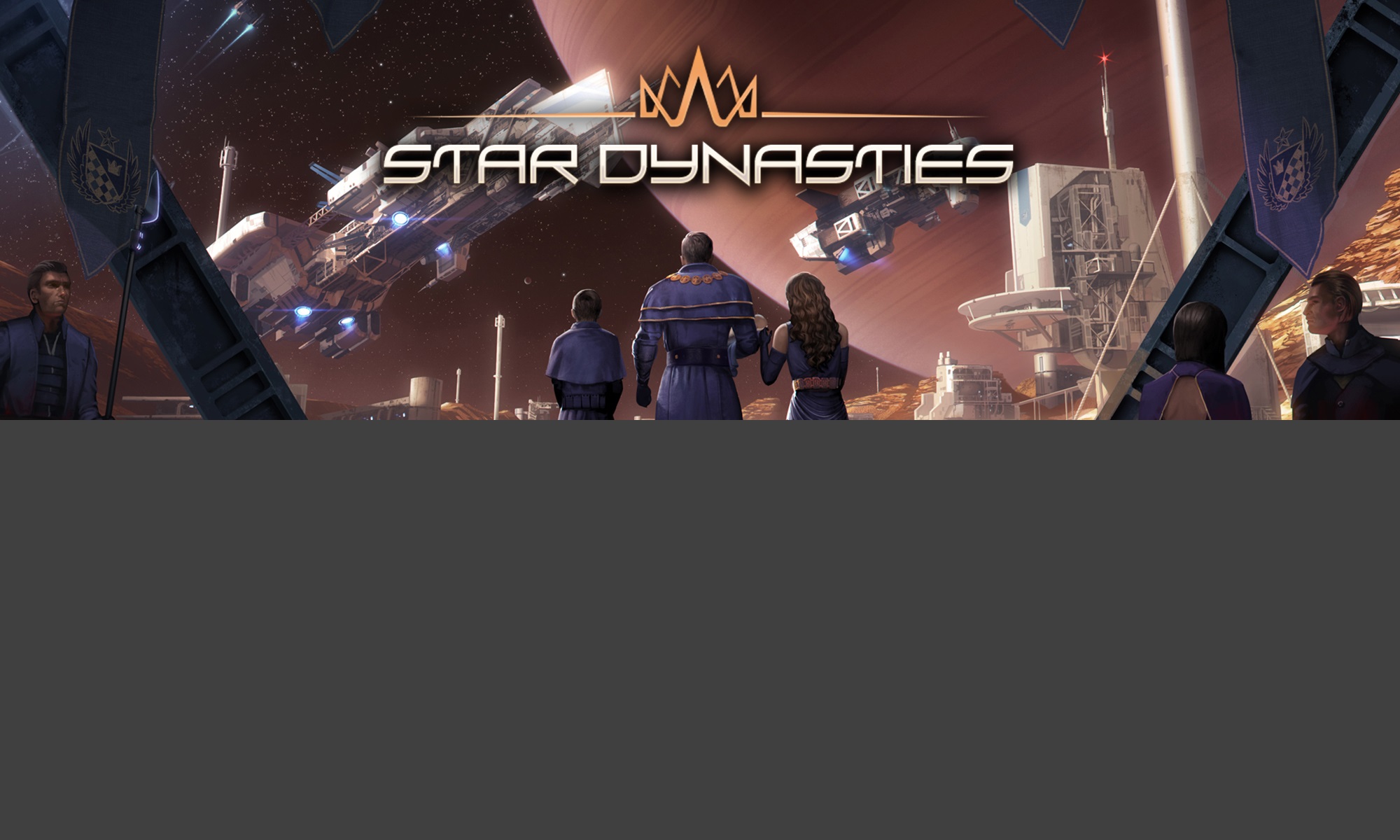I have been working on the information panels the player will use to explore the state of the world in Star Dynasties, so this feels like a good opportunity to provide a quick tour of some of the basic concepts of the game.
Justice / Morality
One of the core features of the character simulation is the concept of moral acts, i.e. actions such as declaring war, cheating on your wife, helping a family member in need, etc., that will trigger a universal condemnation or approval. An example of a non-moral act would be marrying off your son – the newly weds and new in-laws will be happy and pleased with you (presumably), but the rest of the world won’t really care. With moral acts, the world is watching and reviewing it’s opinion of you. On top of that, many moral acts will result in someone bearing a grievance (the victim of the action) or someone owing the doer a favour (the beneficiary of the action). The value of this “social memory” is that it modifies how subsequent moral acts are interpreted. For example, deposing one of your rulers from power is an immoral act, and will usually trigger a widespread opinion change against you for being tyrannical. However, imagine a narrative where the ruler had recently refused to muster their forces and come to your assistance during an attack by another faction. This was an immoral act that granted you a grievance. If you move against the ruler now and depose them, your action will be seen as justified… a punishment of the ruler’s misdeed.
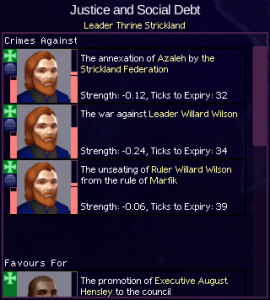
Visibility and Secrets
Visibility is an important part of the game. Your visibility is limited to the visibility of your character, so at any one time you will only see a small portion of the galaxy and its inhabitants. This can lead to some interesting consequences. For example, if your heir is a widely travelled ambassador, you will have a much larger awareness of the world around you when they inherit. If instead you keep your heir locked away in some unimportant role on your home system, you may find that your view of the world shrinks when they take the reins.
As a general rule, if you know of a character then you have full visibility of what they get up to. There are some explicit exceptions to this rule, for e.g. committing murder, which are secret. Secrets stick around in the background and can be discovered by characters with a high Security skill (or by your house’s Security wing), and subsequently revealed to inflict political damage.
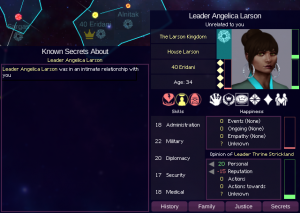
Houses
Apart from characters, houses are the most important unit in the game, and most of your political dealings will be with the heads of these houses, be they the ruling houses of colonies, the leading houses of factions, or lowly noble houses that vie for power within a colony.
Within a house, characters can be assigned to a role from Administration, Military, Diplomacy, Security, and Medical; with one character in each area appointed as the council member of that area. Right now, the members you have assigned in these areas largely contribute passively to your house’s attributes (e.g. Administration increases your income, and Military increases your combat bonuses), but the plan is to flesh out these systems so that each role has it’s own narrative building blocks. For example, characters assigned to Diplomacy can be sent as ambassadors to other houses. An ambassador could (based on their skills and relationships) create a rapproachment with a rival or commit a faux pas that triggers conflict.

Claims
When a dynasty has ruled for a long time, it’s head acquires a legitimate (and inheritable) right to rule or lead particular systems. Claims interact with the morality system in that it is generally considered immoral to replace the ruler or leader of a system with someone who has less of a right to rule that system. But if someone has no legitimate claim, then they are mostly considered fair game. Similarly, if you can find someone with a strong claim on a system, you can use them as a political excuse to declare war (although you’ll still suffer politically later if you annex other systems).
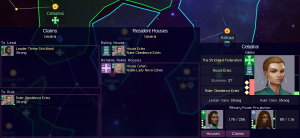
Factions
Factions are the highest level of social grouping of the game and relationships and conflicts between factions will generally be the most important strokes of the narrative you play through in the game.
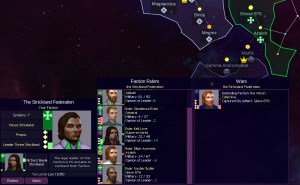
Want to Comment?
Please share your feedback about Basic Concepts and join in other discussions on the Star Dynasties reddit
